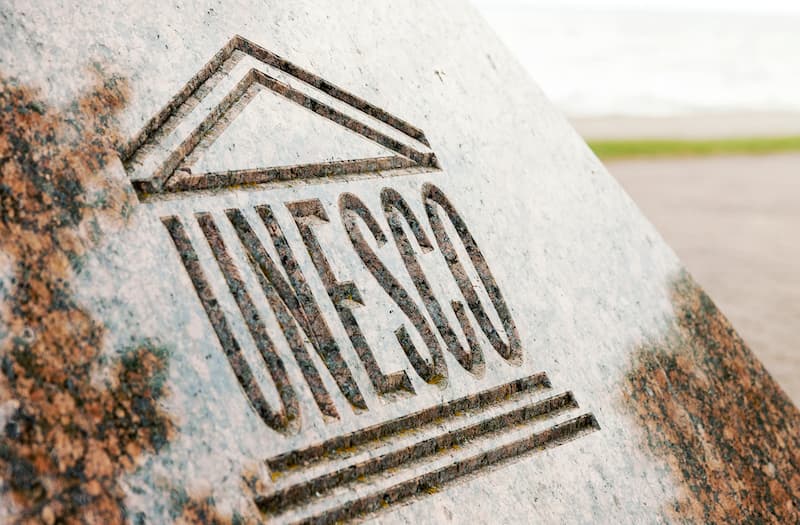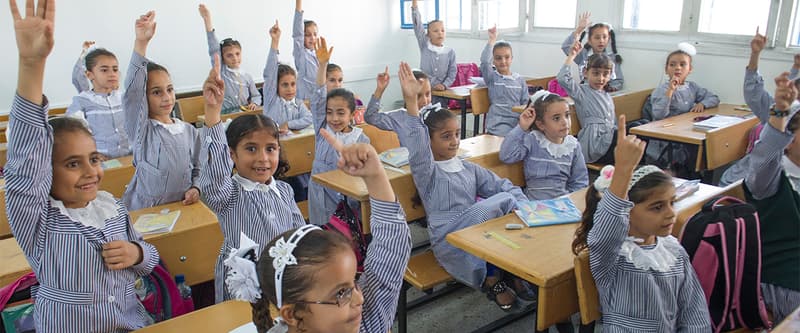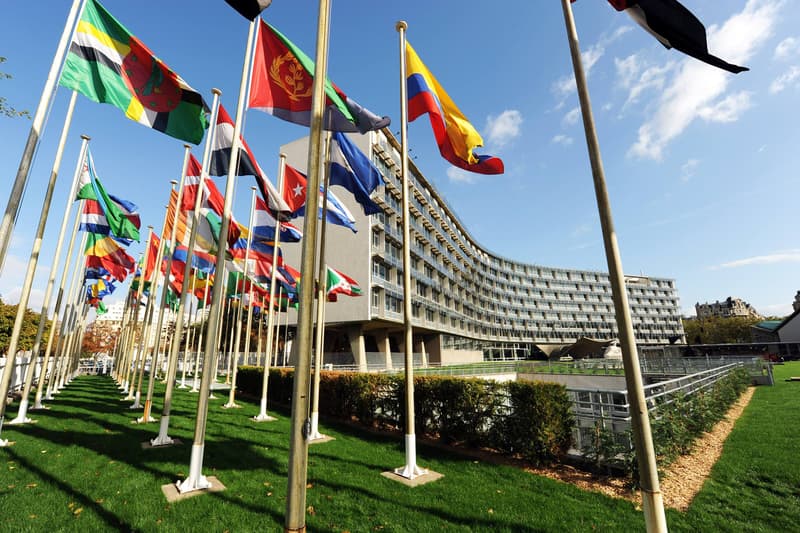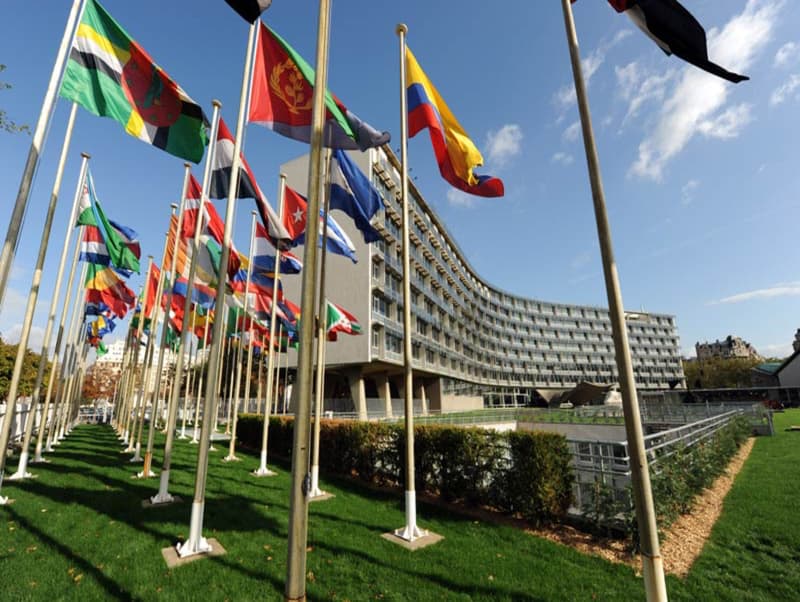Senior Project Officer (Education)
Paris
- Organization: UNESCO - United Nations Educational, Scientific and Cultural Organization
- Location: Paris
- Grade: Mid level - P-4, International Professional - Internationally recruited position
-
Occupational Groups:
- Education, Learning and Training
- Project and Programme Management
- Closing Date: 2023-12-05
Post Number : ED/PA 230
Grade : P-4
Parent Sector : Education Sector (ED)
Duty Station: Paris
Job Family: Education
Type of contract : Project Appointment
Duration of contract : 1 year
Recruitment open to : Internal and external candidates
Application Deadline (Midnight Paris Time) : 05-DEC-2023
UNESCO Core Values: Commitment to the Organization, Integrity, Respect for Diversity, Professionalism
Duration of contract: 1 year with possibility of extension subject to availability of funds and satisfactory performance.
OVERVIEW OF THE FUNCTIONS OF THE POST
In alignment with the 2030 Agenda for sustainable Development and in particular SDG target 4.3, UNESCO’s work in the field of higher education focuses on strengthening international cooperation, generating knowledge and research and providing evidence-based knowledge, capacity development and technical support to Member States to enhance their higher education systems and policies. This includes support to policy reviews and work on the right to higher education, recognition and academic mobility, quality assurance, higher technical education.
Adopted in 2019 in the context of the Operational Strategy for Priority Africa 2022-2029, the flagship programme Campus Africa aims at reinforcing higher education systems in Africa by enhancing the research capacities of African tertiary institutions and strengthening inter-university research collaboration and networks; facilitating academic mobility and supporting doctoral programmes; and strengthening higher technical education to improve relevance through youth skill development and employability. The programme comprises also capacity development initiatives to strengthen data collection and analysis and inform policymaking, and to enhance quality assurance and recognition of qualifications at national, sub-regional and regional levels.
Under the overall authority of the Assistant Director-General for Education, the guidance of the Director of the Division for Policies and Lifelong Learning and direct supervision of the Chief of the Section of Higher Education (ED/PLS/HED), the incumbent will undertake the following tasks and responsibilities:
1. Project Management and coordination
- Conceptualize, design, and oversee the implementation of Campus Africa Programme and related work plans, in cooperation with Field offices in Africa;
- Provide guidance and technical backstopping to field offices in Africa on substantive matters to ensure the smooth and timely delivery of the Programme’s activities and results;
- Establish an effective coordination mechanism and maintain regular exchanges with UNESCO implementing units in and away from headquarters;
- Oversee and monitor budget implementation and expenditure reviews, and all partnership and contractual arrangements in line with UNESCO’s regulations and procedures;
- Lead the preparation of reports on project and budget execution, in accordance with statutory obligations and donors’ requirements;
- Establish and reinforce professional linkages internally with other parts of UNESCO (including relevant institutes, regional offices, other programme sectors and central services).
2. Partnership and Resource Mobilization
- Actively engage in partnership building, negotiating and concluding partnership agreements;
- Design and lead the implementation of a resource mobilization plan to ensure adequate and sustainable funding for all the components of Campus Africa programme;
- Coordinate Field offices in Africa efforts for partnership building and resource mobilization and provide adequate support and guidance in this regard.
3. Technical Support and Networking
- Provide technical support to African Member States on higher education reform and youth skills development in the context of Campus Africa programme, including by adapting and/or designing and implementing appropriate capacity development tailor-made initiatives;
- Engage in, and contribute to the broader African regional policy dialogue on transforming higher education in Africa, including through active participation in international and regional related meetings and events;
- Establish and strengthen collaboration and networking with UNESCO Chairs, African Union relevant networks and platforms facilitating academic and students’ mobility and researchers exchange, with ongoing initiatives such as higher education centres of excellence centres, regional and subregional quality assurance networks, etc.
- Contribute to the programme design and implementation of UNESCO’s Section for Higher Education, providing strategic and technical inputs, supporting the preparation of policy briefs and participating in the review of publications, as required by the Chief of Section.
4. Advocacy and Communication
- Design and lead the implementation of a communication plan for Campus Africa, in coordination with UNESCO Field offices in Africa;
- Oversee the development and operationalization of a Campus Africa knowledge and information platform, including content updates, development of promotion material, technical reports and information briefs;
- Actively promoting relationships with key stakeholders, communicating on successful results and leading advocacy campaigns for support for Campus Africa, including through the dedicated knowledge and information platform on Campus Africa, social media, international and regional high-level events;
- Represent UNESCO on all matters concerning Campus Africa, and other higher education related issues upon request by the Chief of Section, in statutory meetings or at events requiring UNESCO Education Sector’s participation.
EDUCATION
- Advanced university degree (at least Master or equivalent) in education, economics, social sciences, public policy, international development or other related areas.
WORK EXPERIENCE
- Minimum of 7 years of progressively relevant experience in managing higher education projects, of which preferably 3 years acquired at the international level.
- Experience in working with and knowledge of mechanisms for recognition of qualifications and quality assurance in higher education.
- Experience in designing, planning, managing and coordinating the implementation of multidisciplinary or multi-partner higher education and youth skills development programmes/projects in developing country contexts, preferably in Africa.
- Experience in partnership building and fund raising.
SKILLS AND COMPETENCIES
- Good understanding of the international development agenda and demonstrated ability to provide intellectual and technical expertise on trends and policy development in higher education, including transnational education, governance, quality assurance and recognition of qualifications.
- Strong analytical skills with ability to synthesize data and evidence from various sources.
- Strong project and budget management skills, with good practical experience in results-based management and budgeting and gender mainstreaming approaches.
- Strong ability to maintain effective and inclusive working relationships across multiple internal entities, Member States representatives and external partners.
- Strong problem-solving skills and ability to work within tight deadlines.
- Excellent drafting skills and proven track record of producing high quality technical and evidence-based reports.
- Excellent interpersonal skills, and ability to work in and motivate a team in a multicultural environment.
- Excellent presentation skills and ability to communicate effectively.
- Excellent level of IT skills (MS Office) and communication management.
LANGUAGES
- Excellent knowledge (oral and written) of English or French, and good knowledge of the other language.
EDUCATION
- Ph.D. in the field of education, international education, global education policy, development studies, or any other relevant field in the social sciences or humanities.
WORK EXPERIENCE
- Experience in the United Nations system or other multilateral organizations and/or in the field of international relations and multilateral settings/cooperation and development.
SKILLS AND COMPETENCIES
- Good organizational and leadership skills and ability to empower others.
- Familiarity with UNESCO working methods, rules and regulations.
- Ability to interact with a wide range of high-level partners.
LANGUAGES
- Knowledge of other UNESCO official language (Arabic, Chinese, Russian, Spanish).
UNESCO’s salaries consist of a basic salary and other benefits which may include if applicable: 30 days annual leave, family allowance, medical insurance, pension plan etc.
The approximate annual starting salary for this post is 99,657 US $.
For full information on benefits and entitlements, please consult our Guide to Staff Benefits.
SELECTION AND RECRUITMENT PROCESSPlease note that all candidates must complete an on-line application and provide complete and accurate information. To apply, please visit the UNESCO careers website. No modifications can be made to the application submitted.
The evaluation of candidates is based on the criteria in the vacancy notice, and may include tests and/or assessments, as well as a competency-based interview.
UNESCO uses communication technologies such as video or teleconference, e-mail correspondence, etc. for the assessment and evaluation of candidates.
Please note that only selected candidates will be further contacted and candidates in the final selection step will be subject to reference checks based on the information provided.
FooterUNESCO recalls that paramount consideration in the appointment of staff members shall be the necessity of securing the highest standards of efficiency, technical competence and integrity. UNESCO applies a zero-tolerance policy against all forms of harassment. UNESCO is committed to achieving and sustaining equitable and diverse geographical distribution, as well as gender parity among its staff members in all categories and at all grades. Furthermore, UNESCO is committed to achieving workforce diversity in terms of gender, nationality and culture. Candidates from non- and under-represented Member States (last update here) are particularly welcome and strongly encouraged to apply. Individuals from minority groups and indigenous groups and persons with disabilities are equally encouraged to apply. All applications will be treated with the highest level of confidentiality. Worldwide mobility is required for staff members appointed to international posts.
UNESCO does not charge a fee at any stage of the recruitment process.








